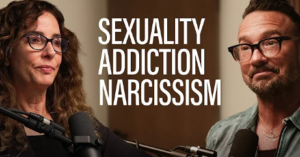“The hypothalamus is one of the most important parts of the brain, involved in many kinds of motivation, among other functions. The hypothalamus controls the ‘Four F’s’: fighting, fleeing, feeding, and mating.”
~ Marvin Dunnette
We’ve all heard the phrase, “Use it or lose it,” and it couldn’t be more accurate regarding both our brains and our genitals. The hypothalamus is one of the major connectors between the brain and the body, motivating us to all kinds of actions, including sex. For this reason we often refer to the brain as the biggest sex organ in the body. When we see an image or person that excites our mental sexual template, signals go through the hypothalamus down to the genitals. Well after we’ve taken in the data seconds, even minutes, pass before the genitals are aroused. Exercising discretion about which and how many images we take in and what sexual situations we enter means we’re using our “brain power” rather than being run by our genital power. With good brain-power (or impulse control) you can enjoy beauty and sensuality all day long without over-taxing or abusing your brain/body.
While letting endless sexual images of all types run rampant in our mind can create sexual problems, depriving ourselves of sexual energy and attraction can create another kind of sexual problem. If we don’t use our genitals, meaning if we don’t have healthy, regular sexual contact for the purpose of pleasure and connection with a lover, it can eventually take longer for us to get aroused by sex. Remember, your body is your temple, so don’t deny yourself pleasure–use it, or lose it.
Daily Healthy Sex Acts:
- Are you overtaxing your brain/body by looking at too many pornographic images or masturbating compulsively? Are there other ways you let your arousal run you instead of using your brain-power?
- Be honest with yourself by looking at your sexual habits and assess whether you’re out of control with sexual behaviors.
- Do you deny yourself sexual pleasure? If so, why? When did that begin? Do you need to share your excuses or fears with someone? Do so today.




